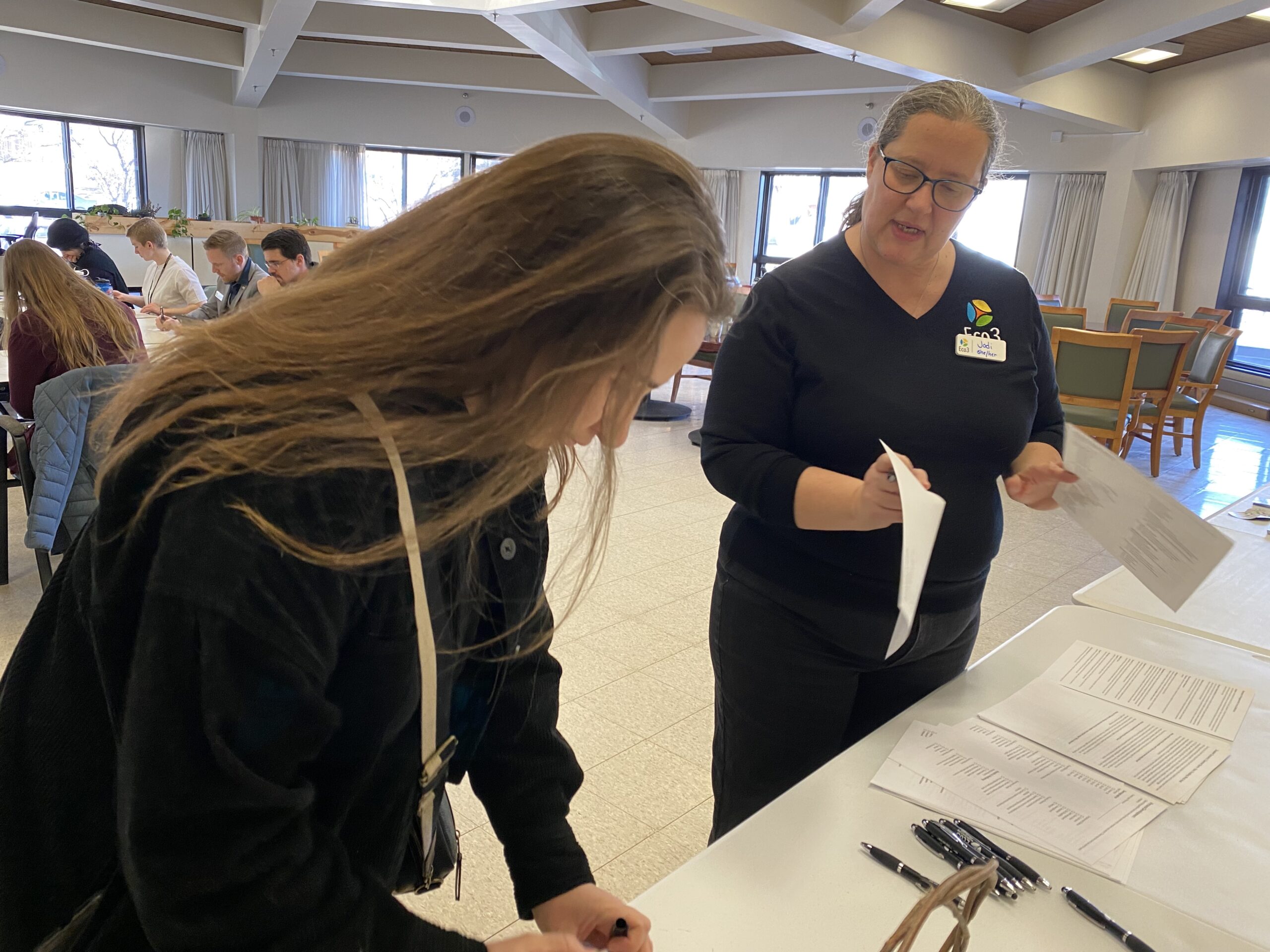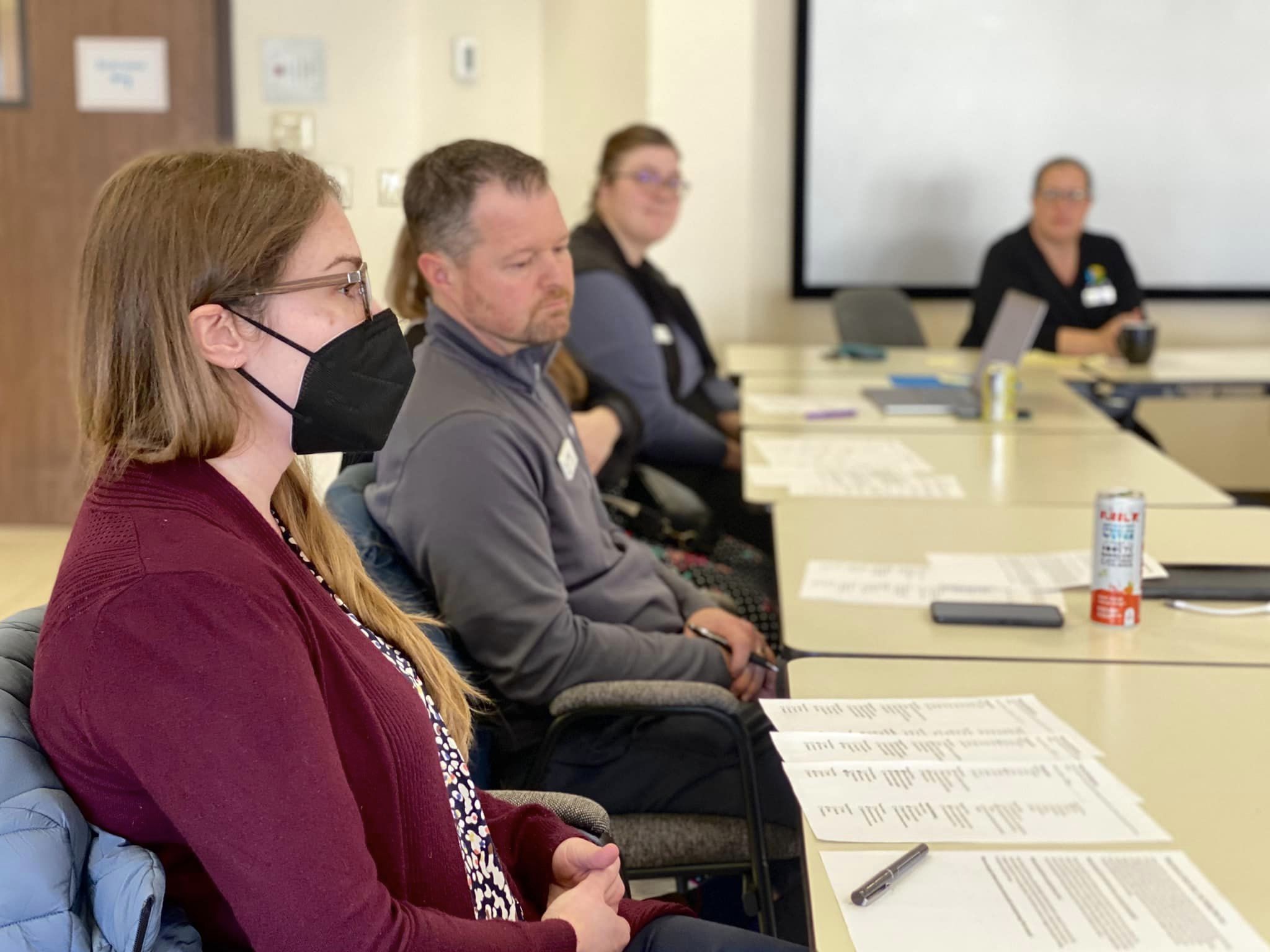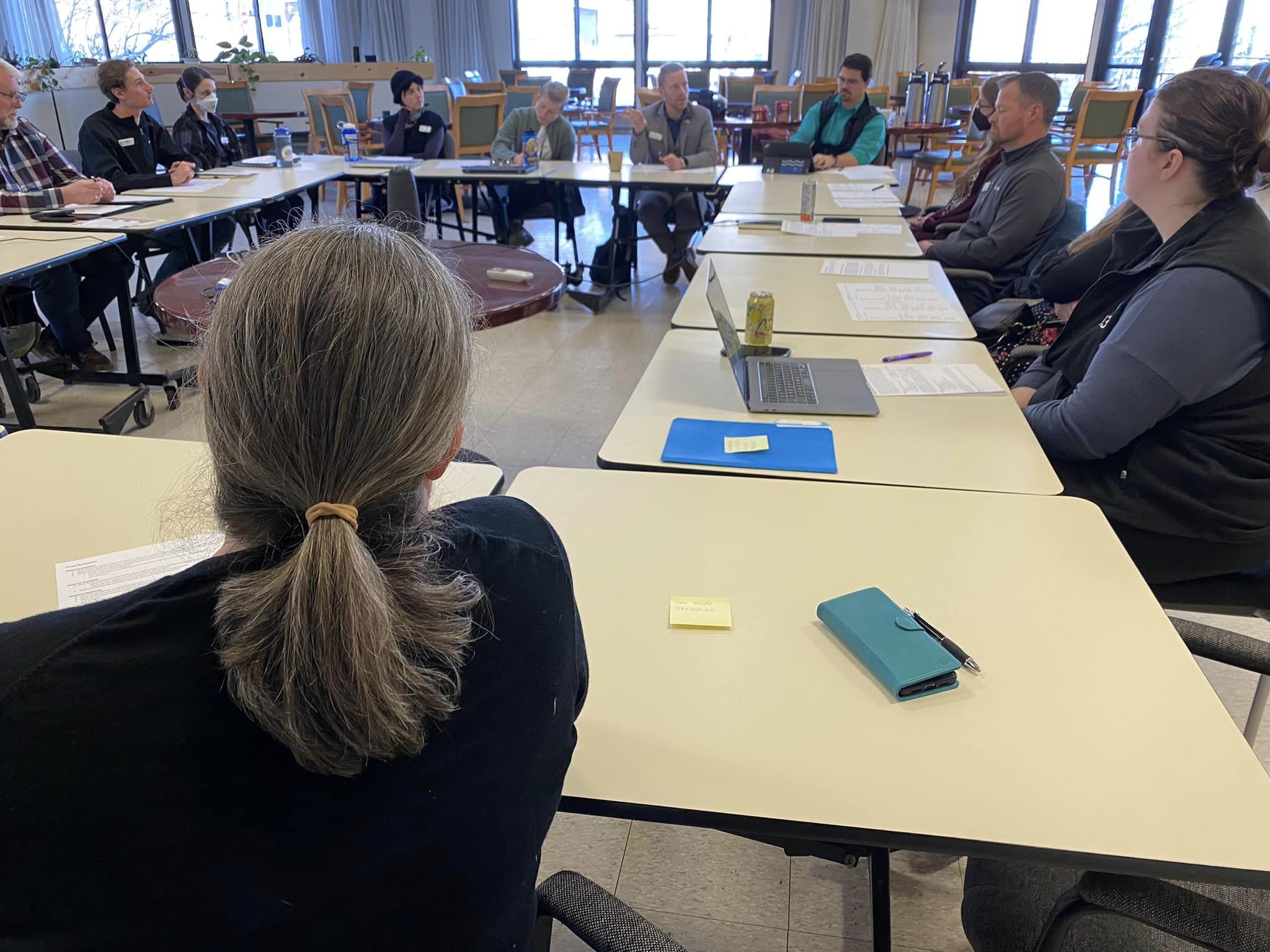


Local organizations participate in discussion, photos from Ready North
In February, Ecolibrium3 co-hosted an emergency preparedness tabletop exercise with Ready North. Ready North is a community-based network working on disaster resilience in the Northland, and Ecolibrium3 is a member of the network. This event was modeled on basic emergency preparedness exercises, but with an important difference: the main focus was on people, especially the most vulnerable folks in our community.
A typical emergency preparedness exercise is held to plan for potential disasters such as extreme weather, widespread loss of power, large-scale health events, or unexpected damage to infrastructure like a collapsed bridge. First responders, aid organizations, and civil offices gather to share information and plan ahead for future emergencies. In these exercises, the conversation usually centers on how to get infrastructure and essential services back online and return to “business as usual.”
Like these typical exercises, the recent event hosted by Ready North gathered community leaders to discuss potential emergencies in our community. But two main differences set this exercise apart. First, the guest list included people who work in community and nonprofit organizations; second, the goal of each scenario was not just to return to “business as usual,” but to explore how the effects of emergencies can be deeply felt for years after the event.
The conversation started with participants visualizing different people their organizations serve. There are impacts that everyone will experience across the board, but the vulnerable populations experience different impacts, experiences, and challenges associated with their social, environmental, and economic statuses. Several vulnerable populations were identified in the scenarios. These included older adults, people with chronic health conditions, those experiencing homelessness, and people who rely on public transportation. Each population type will have different needs and concerns when disaster strikes. Participants were asked to consider the perspectives of these different groups in each scenario.
The two disaster scenarios given were a summer flood with high heat and a winter snowstorm. Both scenarios included loss of power and unsafe road conditions. Participants shared how the people their organizations serve would be affected by these events. These included: older adults who rely on meal deliveries might run out of food; the loss of power might affect people relying on medical equipment to stay alive; workers with low wages might not be able to make rent if they miss work due to flooded streets; dozens of families will need to seek alternative childcare options so they can return to work or school if a daycare center closes. In each of these cases, participants had unique insights to share based on their past experiences working with different groups of people and getting to know their specific challenges.
Throughout all these conversations, participants kept returning to two main points: in times of emergency, those who are most vulnerable will suffer the most; and, recovery from a disaster takes a long time for any community. Drawing on past examples, such as the 2012 flood and the COVID-19 pandemic, participants explained that some people are still trying to recover from loss of income, damaged property, or worsened health. Several people gave examples of the ripple effects of an emergency, such as loss of income or widespread evictions. Participants shared examples of how their organizations have found short and long term solutions in the past.
Input from community organizations will be used to inform Ecolibrium3’s work with the City of Duluth on resilience planning. This work is funded in part by the Renewables Advancing Community Energy Resilience (RACER) Grant. The funding supports community research, studying the needs of our community and minimum resilience standards, as well as technical examinations of potential solar sites in our community. Learn more about the RACER grant and how our work is taking shape.